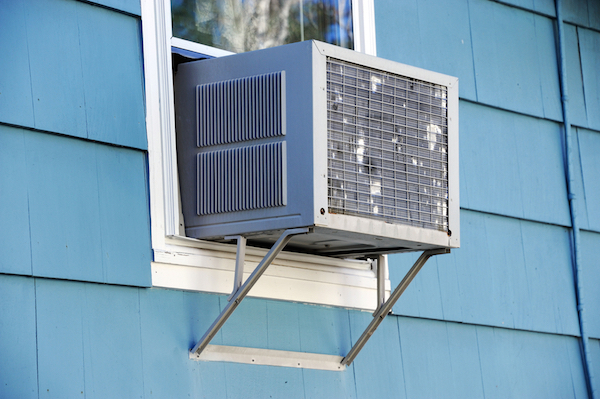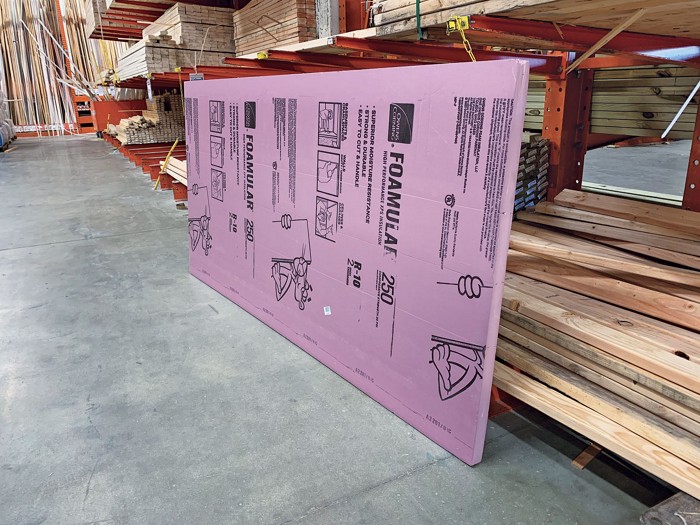
Many of us are familiar with finding relief from the summer heat by cooling off in an air conditioned space. Window AC units are the most common cooling product purchased in the US. In 2016, over 8 million window AC units were sold! Each one consumes electricity to cool off our homes and here we’ll share some tips to get the most out of each kilowatt!
Window Gaps

The baffles and air sealing materials AC manufacturers provide are really terrible at sealing up windows. So much so that the average amount of air leaking(in or out) around the AC unit is same as having a 6 x 6 inch hole in the wall! Any cold air leaking to the outside is energy wasted. What can you do? The best solution is very affordable and the items can usually be purchased at a hardware store, where most ACs are typically sold. Insulating pink foam board and foil tape do an excellent job of sealing the space between your AC and the window. Stopping cold air from leaking out can increase the efficiency of your AC and keep your space cool!
Air Recirculation

The design of most window ACs means that a portion of cold air blown out of the unit gets sucked back into the return port. While this may not seem like a big deal, it actually is. ACs run most efficiently when they have to work hard to cool hot unconditioned air. One way to reduce recirculation is to install a deflector or fin to direct cool air up and away from the return. Cardboard or other household materials be used to make the The thermal image to the left shows this in action. Clue represents cold air while orange is hot air. The fin in the lower half of the image ensures all the air entering the return is orange. his simple trick can increase your AC’s efficiency by up to 20%!
Operation and maintenance
Other easy ways to increase your AC’s efficiency include regular cleaning, maintenance and operation. Keeping air filters and fan blades clean ensure your unit isn’t being slowed down by dust build up. Another thing to keep the evaporator fan, where hot air is exhausted, wet with condensate. Water accumulation in the bottom of the AC is normal and helps it run better! Last but not least, only run the unit when you need too. AC’s run their most efficient under larger thermal loads, such as cooling off a hot room by many degrees rather than cooling a room by on a single degree.
Have questions about reducing energy usage? Looking for advice on how to increase your sustainability? Contact the Safety & Sustainability team!
EHS Director: Ronnie Souza | rsouza@une.edu | 207-602-2488
Associate Director of Sustainability: Alethea Cariddi | acariddi@une.edu | 207-602-2507
EHS Specialist: Peter Nagle | pnagle@une.edu | 207-602-2791
EHS Specialist: Davis Martinec | dmartinec@une.edu | 207-602-2046

